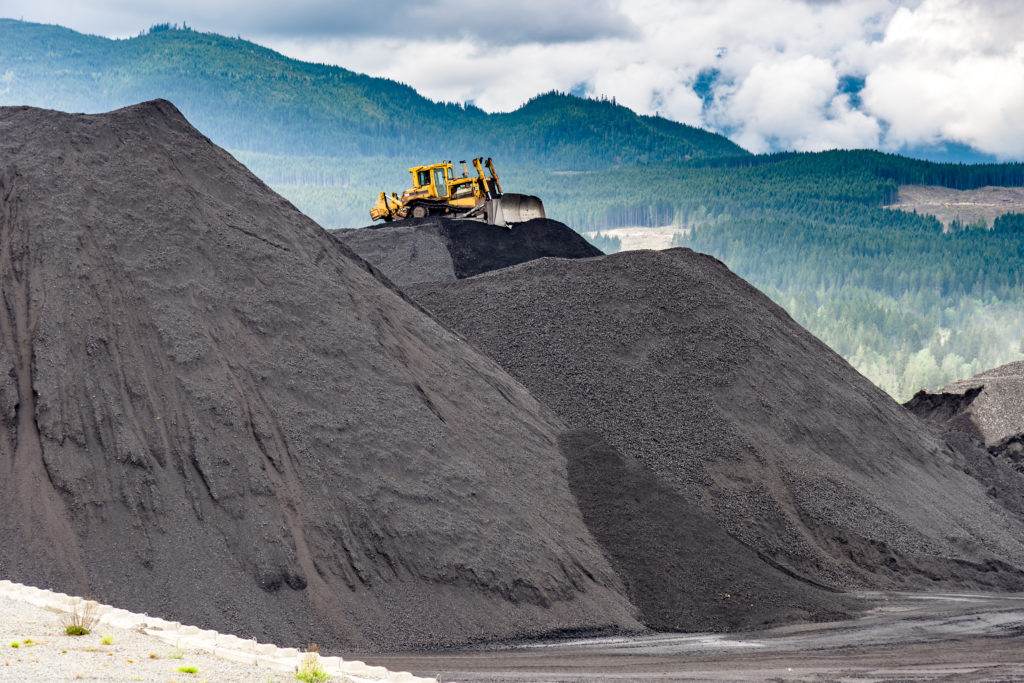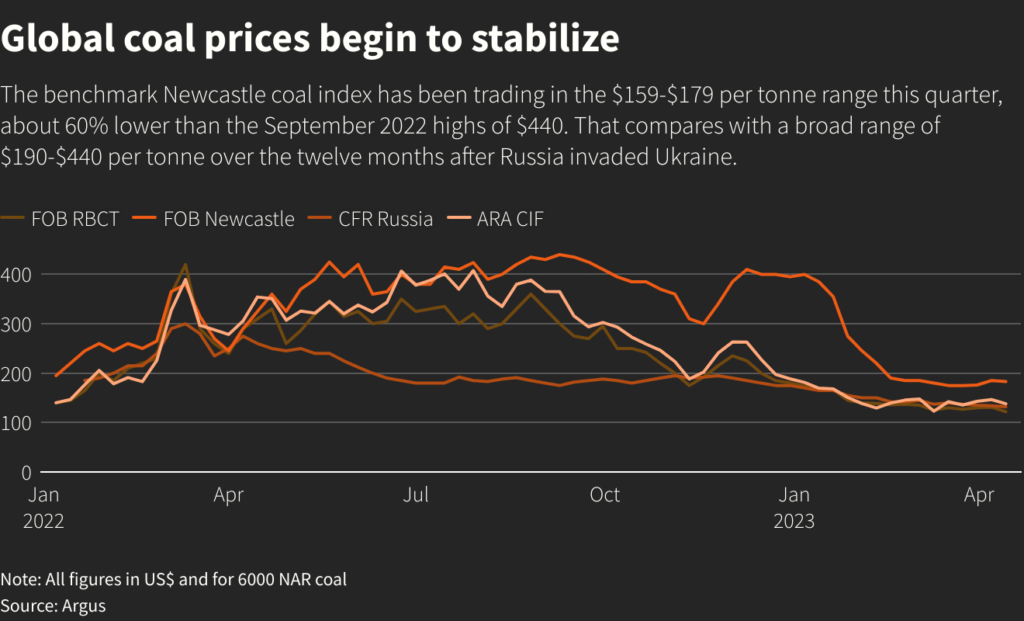Global thermal coal prices settling into $200 per tonne range after volatile 2022

Global thermal coal prices are stabilising this year in a range near $200 a tonne that is less than half of 2022’s record highs, analysts and industry officials say, with rising supplies providing respite to consumers roiled by last year’s volatility.
Analysts expect the benchmark Newcastle coal index to average $175-$212 a tonne this year, a steep premium to the $86 average for the ten years preceding Russia’s 2022 invasion of Ukraine, but down more than 50% from September’s highs at $440.

Last year, punitive Western sanctions on Russia pushed European buyers to pay top dollar for fuel to fire power plants, pushing up global prices. Russia was Europe’s biggest supplier of coal and natural gas before the war.
Coal prices in the tighter range expected this year, though, will help utilities and other users better plan fuel purchases, easing pressure on economies battling high inflation. Fuel prices typically account for more than half the total cost of generating electricity.
Alexandre Claude, chief executive of London-based analytics firm DBX Commodities, said he expects lower volatility in 2023 compared with 2022 because trade flows had stabilized after the “energy shock” that followed the invasion of Ukraine.
Argus Consulting expects global coal exports to rise 4.4% this year, with imports set to increase 5%. China is seen ramping up imports by 11%, with Australian exports rising 9.4% after declining for three straight years.
July Ndlovu, chairman of the World Coal Association (WCA) and chief executive of South Africa’s Thungela Resources, said Europe’s “disproportionate” role in deciding coal prices was over.
“Going forward … what happens with China and India is what would drive the fundamentals for energy, because that’s where growth and energy demand is,” Ndlovu told Reuters.
Australia’s Westpac said this month it expects the Newcastle benchmark to average $193 per tonne over the nine months ending December 2023, while Citi said in April it expected the index to average $175 over 9-12 months. Australia’s chief economist expects Newcastle benchmark prices to average $212 this year.
As of Monday, Newcastle coal was just over $159 a tonne on a free-on-board basis, at the low end of a $159-$179 range it has held during the current quarter and a long way from the $180-$403 band of the first quarter.
“We expect coal prices including the Newcastle benchmark to remain supported mostly due to higher cash (production) costs for the coal miners,” said DBX’s Claude, explaining why prices likely aren’t headed back to pre-invasion, pre-pandemic levels.
Demand and supply
Top exporters Indonesia and Australia are expected to ramp up shipments to meet higher demand from India and parts of Southeast Asia, making up for small declines in supply from elsewhere including Russia, according to estimates by Australia’s chief economist and Argus.
The Australian chief economist’s office expects supplies from Australia to jump 7.8% and Indonesian exports to rise 2.4%, while imports by Asia rise 2.3% to 852 million tonnes and shipments to Europe fall more than 15%.

Exports from Russia are expected to be lower, Argus and Australia’s estimates show, with the narrowing spread between Russia’s discounted coal and other benchmarks reducing the competitiveness of Russian coal.
Steep discounts to benchmark prices helped Russia lure Asian buyers after the Western sanctions prevented sales to Europe, but that advantage is disappearing.
The forecast for an El Nino weather pattern, typically associated with drier conditions, could also reduce rain-related disruptions to supply and support higher coal output from key regions and ease prices back from the highs of the past year.
A plunge in natural gas prices is expected to aid Europe’s shift away from coal this year as well and that will have a similar effect.
Any indication of a slower-than-expected economic recovery in China, however, could have a larger impact on prices despite this year’s growth in imports and rising domestic coal output.
“Price stability will probably be driven by how the Chinese central government decides in terms of their energy policies,” said WCA chairman Ndlovu.
(By Sudarshan Varadhan and Carman Chew; Editing by Tom Hogue)
{{ commodity.name }}
{{ post.title }}
{{ post.date }}




Comments